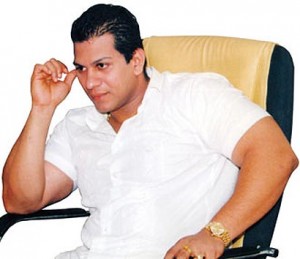The war is over and people are looking at what could have been
In the thirty-something years that Sri Lanka fought with itself, profound changes were wreaked on the country. Its institutions have been greatly weakened and some of the best achievements since independence frittered away.
In the 1960s, East Asian countries such as Singapore and South Korea visited Sri Lanka to study its social support system that provided free healthcare to all and free education up to a first degree.
While those countries went ahead and implemented similar systems, reaping considerable rewards, Sri Lanka’s health and education systems have suffered.
Today, parents with means flock to privately run schools as the quality of education in government schools has slumped alarmingly. There is constant political intervention in universities affecting administration and academics gravely.
But the most serious deterioration has been in the democratic institutions of the country. For decades held up as a multicultural, multi-religious, model democracy, Sri Lanka is now a country with few democratic freedoms, where citizens have little faith in the justice system and minorities feel aggrieved.
The erosion of the once noble police force, for example, began in the 1970s with the institutionalisation of political interference. Police officers seeking promotions need to get letters of recommendation from government party politicians to be successful.
Sri Lanka’s civil war pitted the state against the separatist Liberation Tigers of Tamil Eelam.
In order that his “nation” could fight the state, Tiger supremo Velupillai Prabhakaran turned the regions under his control into a mono-cultural, highly militarised, rigidly controlled “state” where every citizen had to support his directives or perish.
There was also no option to leave. Eventually, this dreaded organisation was defeated on the battlefield. But what has followed is troubling.
Every government that came to power and fought the LTTE had the option of negotiating peace or fighting the Tigers. In almost every instance where peace deals were being made, it was the Tigers who found ways of torpedoing them.
But the current administration of President Mahinda Rajapakse made scant attempts at peacemaking — they went to war and successfully crushed the Tigers.
While the war was on, media freedoms were curtailed and everybody exhorted to support the war effort. All dissenters — whether they were critical of the government’s economic policies or exposed corruption — were painted as traitors and Sinhala supremacist elements who were on the fringes of politics in Sri Lanka occupied the centre stage.
Now the war is over, but the repression of the media continues and there is no open political discourse. The security forces, which are nearly 400,000 strong — one person under arms for every 50 people — remain enormous for a country now ostensibly at peace.
The country is awash with weapons, with underworld figures controlling armed groups of men, many of them deserters from the armed forces.
The Tamil people who were “liberated” by the government forces languish in devastated lands bereft of a political solution that addresses the grievances that gave birth to their rebellion.
The breakdown of institutions is being brought into sharp relief by a recent violent incident.
Sri Lankans are now watching bemusedly as the state tries to deal with the murder of leading pro-government trade unionist and presidential adviser Bharatha Lakshman Premachandra, allegedly by a bodyguard of a ruling party member of parliament, Duminda Silva.
The two men allegedly clashed in public as the police watched during last month’s municipal elections and their bodyguards exchanged fire. The police — used to automatically taking the government side in such incidents — were bewildered, unable to decide whether to arrest the surviving government politician or not. Silva, who apparently has a bullet lodged in his head, was reportedly flown to Singapore for treatment.
Sad, angry and worried, Sri Lankans are looking back at the last four decades and wondering what could bring that state back.
Perhaps it is time for a Lankan Spring.
This article first appeared in the New Straight Times (www.nst.com)


April 2, 2012 at 5:42 pm
I’m writing to make you be aware of what a exceptional experience my child gained studying your blog. She came to find plenty of things, which include what it is like to have an awesome helping mood to make many more smoothly fully understand specified impossible topics. You actually did more than her expectations. Thank you for presenting the necessary, safe, revealing and even easy thoughts on this topic to Kate.